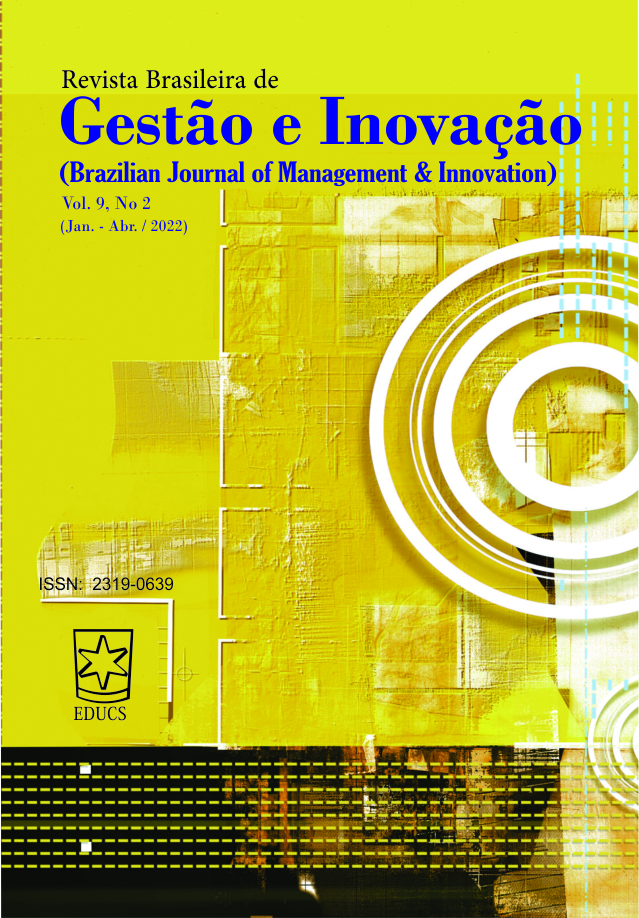TEST OF A FRAMEWORK FOR IMPLEMENTING THE OPEN INNOVATION: CASE STUDY OF AN AUTOMATION COMPANY
DOI:
https://doi.org/10.18226/23190639.v9n2.05Keywords:
Open Innovation, Framework de implementação, Projeto piloto, Estudo de caso.Abstract
In order to increase the capacity for innovation and competitiveness, different types of companies have adopted the Open Innovation - OI strategy. However, the literature shows that companies have difficulties in implementing this strategy, mainly due to the lack of implementation methodologies. This article aims to empirically test a framework in the implementation of an OI project. Therefore, a case study was carried out with an agro-industrial automation company, where a project in partnership with a public university to develop a new technology was selected in the company's portfolio. The project was adjusted to the framework model, following the implementation steps. The tool presented a new system for implementing the OI, which allowed mapping the opportunities for partnerships and technological assets in the external environment, as well as helping to identify in the company the critical factors, deficiencies, competences and skills required for implementation. The results showed that the culture of innovation focused on external relationships, the adaptation of OI practices to the company's processes and characteristics, and the use of legal incentives for innovation, were crucial elements for the success of the OI project. Similarly, the research revealed that one of the difficulties in evaluating OI projects is to provide more effective instruments for monitoring and controlling the implementation process
Downloads
Published
How to Cite
Issue
Section
License
Copyright (c) 2021 Brazilian Journal of Management & Innovation

This work is licensed under a Creative Commons Attribution 4.0 International License.
The author must guarantee that:
- there is full consensus among all the coauthors in approving the final version of the document and its submission for publication.
- the work is original, and when the work and/or words from other people were used, they were properly acknowledged.
Plagiarism in all of its forms constitutes an unethical publication behavior and is unacceptable. Revista Brasileira de Gestão e Inovação has the right to use software or any other method of plagiarism detection.
All manuscripts submitted to RBGI - Revista Brasileira de Gestão e Inovação go through plagiarism and self-plagiarism identification. Plagiarism identified during the evaluation process will result in the filing of the submission. In case plagiarism is identified in a manuscript published in the journal, the Editor-in-Chief will conduct a preliminary investigation and, if necessary, will make a retraction.
This journal, following the recommendations of the Open Source movement, provides full open access to its content. By doing this, the authors keep all of their rights allowing Revista Brasileira de Gestão e Inovação to publish and make its articles available to the whole community.
RBGI - Revista Brasileira de Gestão e Inovação content is licensed under a Creative Commons Attribution 4.0 International License.
Any user has the right to:
- Share - copy, download, print or redistribute the material in any medium or format, linking to RBGI site.
- Adapt - remix, transform and build upon the material for any purpose, even commercially.
According to the following terms:
- Attribution - You must give appropriate credit, provide a link to the license, and indicate if changes were made. You may do so in any reasonable manner, but not in any way that suggests the licensor endorses you or your use.
- No additional restrictions - You may not apply legal terms or technological measures that legally restrict others from doing anything that the license permits.
#RBGI







